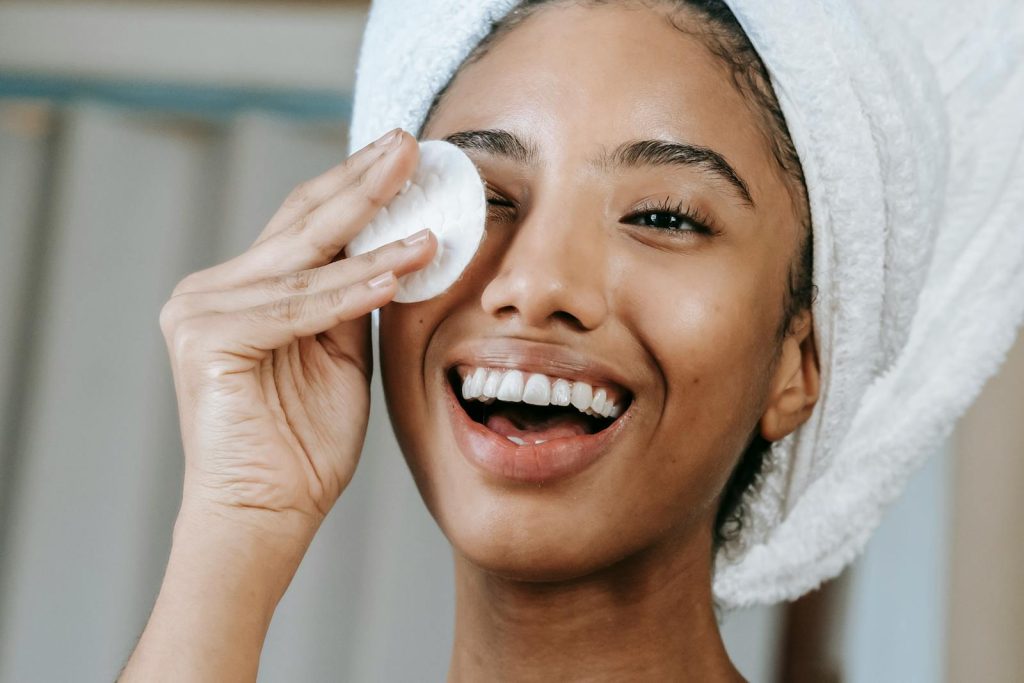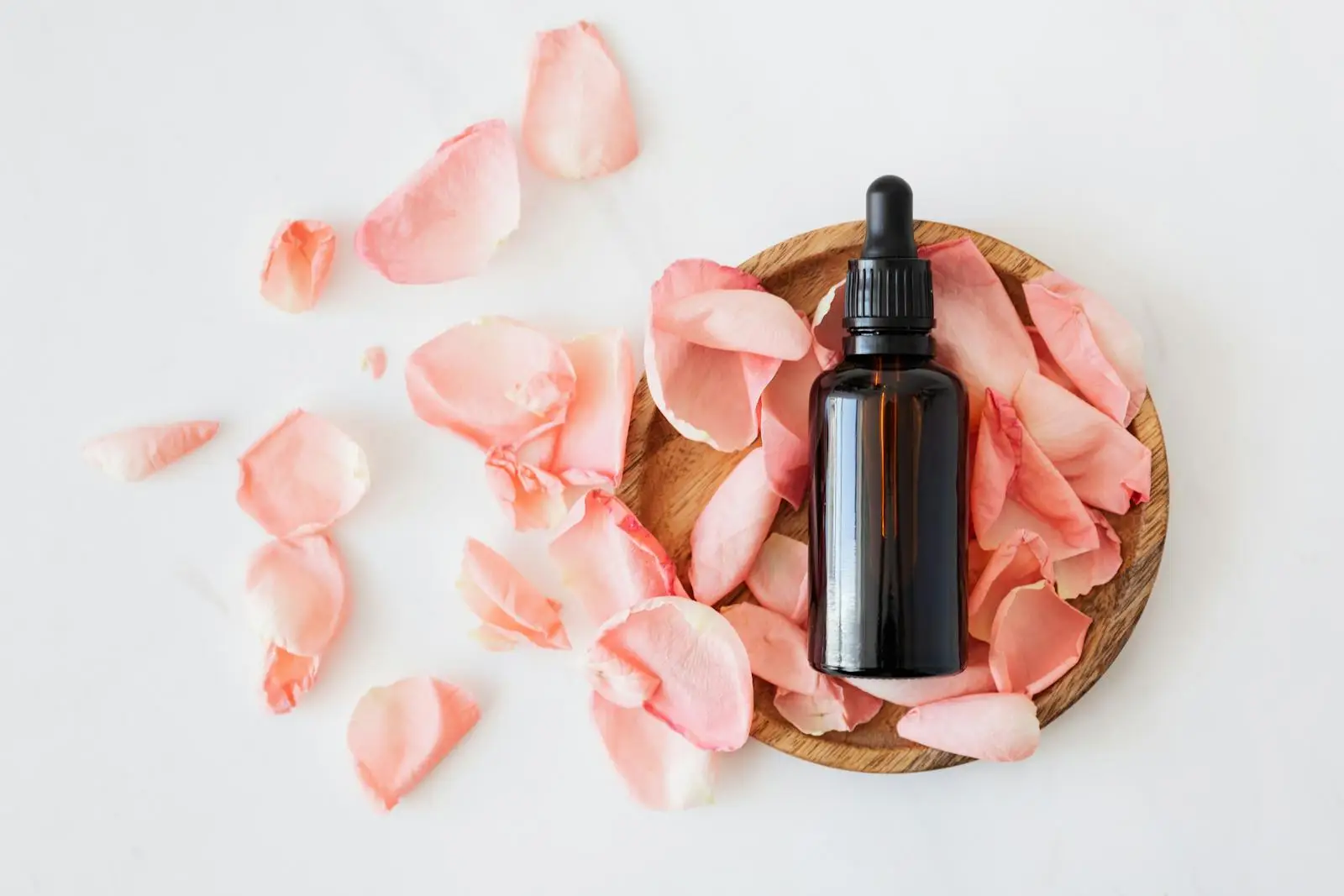Natural facial moisturizers are essential to skincare routines for those seeking healthier, more radiant skin. They are formulated with natural ingredients, offering numerous benefits without the harsh chemicals in synthetic products. This comprehensive guide explores everything you need to know about natural facial moisturizers, from their benefits to DIY recipes, and how to choose the best one for your skin type.
What are Natural Facial Moisturizers?
Natural facial moisturizers are skincare products made with ingredients sourced from nature. Unlike synthetic moisturizers, they avoid harmful chemicals and artificial additives, relying on plant-based extracts, oils, and other natural substances to hydrate and nourish the skin. These moisturizers can come in various forms, such as creams, lotions, oils, and gels, each offering different textures and benefits depending on your skin type and preferences.
Natural facial moisturizers emphasize using minimally processed ingredients and are free from synthetic chemicals like parabens, sulfates, and phthalates. This makes them a safer and more environmentally friendly choice. Moreover, natural ingredients are often rich in vitamins, minerals, and antioxidants, providing additional benefits beyond moisturizing the skin. They can help repair skin damage, combat signs of aging, and maintain overall skin health.
Benefits of Using Natural Facial Moisturizers
Gentle on the Skin

Natural moisturizers are typically free from harsh chemicals, making them suitable for sensitive skin. The absence of synthetic fragrances and dyes means they are less likely to cause irritation or allergic reactions.
Environmentally Friendly
By choosing natural products, you support sustainable practices and reduce your environmental footprint. Many natural brands emphasize eco-friendly packaging and ethical ingredient sourcing.
Rich in Nutrients and Antioxidants
Ingredients like aloe vera and coconut oil contain vitamins and antioxidants that promote skin health. These nutrients help to repair and protect the skin from environmental damage.
Free from Harmful Chemicals
Many synthetic moisturizers contain parabens, sulfates, and synthetic fragrances that can irritate the skin. Natural options avoid these harmful additives, reducing the risk of adverse reactions and long-term skin damage.
Suitable for Sensitive Skin
Natural ingredients are less likely to cause allergic reactions or irritation, making them ideal for sensitive skin types. Ingredients like chamomile and calendula are known for their soothing properties and are often included in natural moisturizers for sensitive skin.
Key Ingredients in Natural Facial Moisturizers
- Aloe Vera: Known for its soothing and hydrating properties, aloe vera is a staple in natural skincare. It helps to calm inflammation, reduce redness, and provide a moisture barrier for the skin.
- Coconut Oil offers deep moisturization and antibacterial benefits. It is rich in fatty acids that nourish the skin and help maintain its natural moisture barrier.
- Shea Butter provides intense hydration and improves skin elasticity. It is packed with vitamins A and E, which help soothe and repair the skin.
- Jojoba Oil mimics the skin’s natural oils, making it ideal for all skin types. It is non-comedogenic, meaning it won’t clog pores, and it helps to balance oil production.
- Rosehip Oil: Rich in vitamins A and C, it helps to reduce scars and fine lines. Rosehip oil is also known for its ability to brighten the skin and improve overall tone and texture.
- Honey: A natural humectant that attracts and retains moisture. Honey also has antibacterial properties, making it beneficial for acne-prone skin.
- Essential Oils: Oils like lavender and tea tree add fragrance and additional skin benefits. Lavender oil is known for its calming properties, while tea tree oil has antibacterial and anti-inflammatory effects.
How to Choose the Best Natural Facial Moisturizer for Your Skin Type
Identifying Your Skin Type
The first step is to understand whether your skin is oily, dry, combination, or sensitive. Each skin type has different needs and will benefit from different ingredients and formulations.
Matching Ingredients to Skin Types
- Oily Skin: Look for lightweight, non-comedogenic oils like jojoba oil. Ingredients like tea tree oil and witch hazel can help control excess oil and reduce the appearance of pores.
- Dry Skin: Choose rich, hydrating ingredients like shea butter and coconut oil. Hyaluronic acid and glycerin are also excellent for attracting and retaining moisture.
- Combination Skin: Balance with ingredients like aloe vera and rosehip oil. These can hydrate dry areas without overloading oily zones.
- Sensitive Skin: Choose gentle, soothing ingredients like chamomile and calendula. Avoid products with strong fragrances or essential oils that could irritate.
Reading Labels and Understanding Ingredients
Learn to read ingredient lists and recognize beneficial components. Look for certifications like “organic” or “natural” to ensure product quality.
Tips for Patch Testing
Always test new products on a small skin area to ensure they don’t cause adverse reactions. Apply a small amount to the inner wrist or behind the ear and wait 24-48 hours to check for any irritation or allergic response.
DIY Natural Facial Moisturizer Recipes

Creating your natural facial moisturizers at home can be a fun and rewarding experience. Here are some simple recipes using common ingredients you may already have in your kitchen.
Aloe Vera and Coconut Oil Moisturizer
- Ingredients: 2 tbsp aloe vera gel, 1 tbsp coconut oil.
- Instructions: Mix the ingredients until well combined. Store in a clean, airtight container and use within a week.
Shea Butter and Jojoba Oil Cream
- Ingredients: 2 tbsp shea butter, 1 tbsp jojoba oil.
- Instructions: Melt the shea butter in a double boiler. Once melted, remove from heat and stir in the jojoba oil. Let it cool and solidify before use.
Rosehip Oil and Honey Face Mask
- Ingredients: 1 tsp rosehip oil, 1 tsp honey.
- Instructions: Mix the ingredients and apply them to the face. Leave on for 15-20 minutes before rinsing off with warm water.
Step-by-Step Instructions
Follow the detailed steps for each recipe to ensure the desired consistency and effectiveness. Always use clean utensils and containers to prevent contamination.
Tips for Customization Based on Skin Type
Adjust ingredients according to your skin’s needs. For example, add a few drops of tea tree oil for acne-prone skin or extra aloe vera for added hydration.
Top 10 Natural Facial Moisturizers on the Market
Here are some of the best natural facial moisturizers available today, reviewed based on their ingredients, effectiveness, and user feedback.
- Weleda Skin Food: This product is best for dry skin and contains shea butter, beeswax, and essential oils. It is available at major retailers and online stores for $18.99.
- Burt’s Bees Daily Moisturizing Cream: This cream, which features rice extract and aloe vera, is ideal for sensitive skin. It costs $16.00 and is available at drugstores and online.
- Acure Radically Rejuvenating Whipped Night Cream: Contains multi-peptides and vitamin C. Price: $19.99. Available at health food stores and online.
- Kora Organics Noni Glow Face Oil is made with rosehip oil, noni extract, and pomegranate oil. It costs $68.00 and is available at Sephora and online.
- Pai Skincare Chamomile & Rosehip Calming Day Cream is great for sensitive and reactive skin. It costs $60.00 and is available at beauty boutiques and online.
- Mad Hippie Face Cream combines peptides, acai, and argan oil. It costs $25.99 and is available at health food stores and online.
- Tata Harper Repairative Moisturizer: This luxurious and hydrating moisturizer is made with hyaluronic acid. It costs $130.00 and is available at high-end retailers and online.
- Drunk Elephant Protini Polypeptide Cream: Rich in peptides and amino acids. Price: $68.00. Available at Sephora and online.
- Juice Beauty Antioxidant Moisturizer: It contains organic jojoba oil and shea butter. It costs $32.00 and is available at health food stores and online.
- Herbivore Botanicals Pink Cloud Cream: Hydrates with rose water, aloe, and white tea extract. Price: $48.00. Available at beauty stores and online.
How to Apply Natural Facial Moisturizers for Best Results
Preparation Steps for Optimal Absorption
Start with clean skin. Wash your face with a gentle cleanser to remove dirt and makeup.
Proper Techniques for Different Types of Moisturizers
- Creams and Lotions: Apply upward, circular motions, ensuring even coverage. Focus on areas prone to dryness, such as the cheeks and forehead.
- Oils: Pat onto the skin gently, using just a few drops. Oils can be particularly beneficial when applied to damp skin, as they help to lock in moisture.
- Gels: Apply a thin layer and allow it to absorb fully. Gels are often cooling and soothing, making them great for sensitive or irritated skin.
Tips for Maximizing Benefits and Enhancing Skin Health
For best results, use moisturizer twice daily, morning and night. Adjust the amount based on your skin’s needs and the product’s instructions. Consider using additional skincare products, like serums or toners, to complement your moisturizer and enhance its benefits.
Common Myths about Natural Facial Moisturizers
Myth: Natural moisturizers aren’t as effective as synthetic ones.
Fact: Many natural ingredients are scientifically proven to be highly effective. Hyaluronic acid, found in many natural products, is known for its exceptional hydrating properties.
Myth: Natural moisturizers are always safe.
Fact: It’s important to patch test as some natural ingredients can cause reactions. Even natural products can contain allergens, so testing new products on a small skin area before full application is crucial.
Myth: Natural products are too expensive.
Fact: While some high-end natural products can be pricey, many affordable options are available. Additionally, DIY recipes can be a cost-effective alternative, allowing you to control the ingredients and tailor them to your needs.
Myth: All natural products are eco-friendly.
Fact: Not all natural products are created equal. Look for brands prioritizing sustainability and eco-friendly practices, such as using recyclable packaging and ethically sourcing ingredients.
What Social Media Says about Natural Facial Moisturizers
Overview of Trends and Discussions
Social media platforms like YouTube, Reddit, and Quora are buzzing with discussions about natural facial moisturizers. Users share their experiences, DIY recipes, and product recommendations, creating a vibrant community of skincare enthusiasts.
Embedding Relevant Links and Quotes
YouTube:
Reddit:
Quora:

What are great natural moisturisers?

What is the best natural face moisturizer?
Frequently Asked Questions (FAQs)
Q: Are natural facial moisturizers suitable for all skin types?
A: Yes, there are natural moisturizers for every skin type. Choosing one with ingredients that match your skin’s needs is important. For example, jojoba oil is great for oily skin, while shea butter is excellent for dry skin.
Q: Can I make my natural facial moisturizer at home?
A: Absolutely! There are many simple and effective DIY recipes available. You can customize the ingredients based on your skin type and preferences. For instance, combining aloe vera gel and coconut oil creates a hydrating and soothing moisturizer.
Q: How often should I use a natural facial moisturizer?
A: It’s generally recommended to use a facial moisturizer twice daily, morning and night. However, you can adjust this based on your skin’s needs. During the day, a lighter moisturizer with SPF might be ideal, while at night, you can use a richer cream for deeper hydration.
Q: What should I do if I react to a natural moisturizer?
A: If you experience any irritation or allergic reaction, discontinue use immediately and consult a dermatologist. It’s important to patch-test any new product before applying it to your face.
Q: Do natural moisturizers have a shorter shelf life than synthetic ones?
A: Yes, because they lack synthetic preservatives, natural moisturizers may have a shorter shelf life. Check the expiration date and look for signs of spoilage, such as changes in texture or smell. Store them in a cool, dry place to extend their shelf life.
Conclusion
Natural facial moisturizers offer numerous benefits, from being gentle on the skin to providing rich nutrients and supporting sustainable practices. By choosing natural products, you’re not only taking care of your skin but also making a positive impact on the environment.
Making the switch to natural facial moisturizers can significantly improve your skin health. With various products available and simple DIY recipes, it’s easier than ever to find a moisturizer that suits your skin type and preferences.
Healthy, glowing skin is achievable with the right skincare routine and products. Natural facial moisturizers provide a safe, effective, and environmentally friendly way to maintain your skin’s health. Embrace the power of nature and enjoy the benefits of a radiant complexion.

Leave a Reply